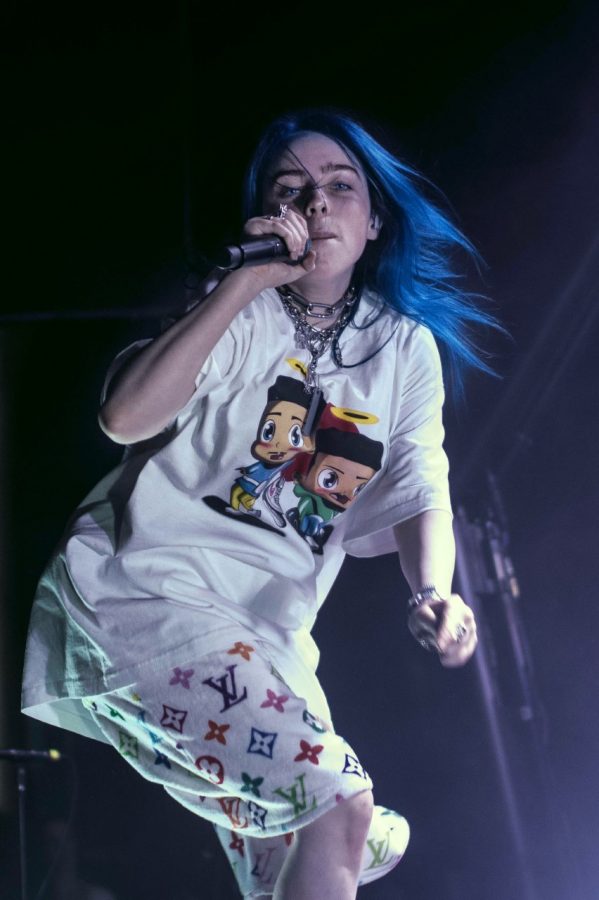Back in February, I paid a bunch of money to see Billie Eilish perform at Marymoor Park this coming June. After clicking away for tickets for my girlfriend and I, my first reaction was one of both surprise and excitement.
With self-doubt fresh in mind, I dutifully spent hours listening to her music and watching Vanity Fair and Complex interviews to better prepare for the concert. Now, oddly enough, I have emerged a fan.
Eilish and her music are sensual, unique, and borderline sadistic, in the best possible way. Her music and self-branding are exceptional and refreshing in comparison to the hyper-sexualized presentation of similar female pop icons.
Her baggy Gucci sweatpants, her oversized blue button down shirts, and her Invisalign (her album, “When We All Fall Asleep, Where Do We Go?,” released in March, begins with her popping out her aligners) stands in colorful contrast to the fishnets and stillettos of hypersexualized female musicians.
While musicians like Taylor Swift and Ariana Grande are seemingly in a constant stage of reinvention, forced to negotiate the madonna-Eve dichotomy of being both the ‘loose woman’ and ‘the good girl’, Billie Eilish seems to be herself. Part of Eilish’s allure lies in her age.
At 17, she is the first person born in the 2000s to produce a number one album.
A mixture of melancholic, frenzied and frightening, her songs are reflective of a relatable teenage angst and a desire to be different that lends itself to comparisons to everything from punk, grunge and Lana del Rey.
Yet, Eilish remains unique as a person and artist. For example, “My Boy,” part of her debut EP “Don’t Smile at Me” (released in 2015), presents itself as a benign song about a lying boyfriend, yet contains the lyrics “Alright dude, go trip over a knife”.
Similarly, “Bellyache” is a song about murdering her friends and putting them in the back of her car. In “Bad Guy,” one of my favorite songs off her new album, Eilish stylizes herself as the villain in a very teenage way.
“Make your mama sad type/ Make your girlfriend mad type/ Might seduce your dad type/ I’m the bad guy, duh.”
These songs, where Eilish takes on the persona of someone she is not, acts as a sort of identity exploration. She is role playing in the most playful way. While other artists use this tactic more violently, such as Eminem taking on the persona of Slim Shady, a homophobic, violent killer who fantasizes about locking his wife in the trunk of his car, Eilish’s murderous ideations are more explorative.
As Eilish put it in a 2017 LadyGunn interview: “We like to write about stuff we’re going through and things that people relate to, but it’s also really fun to put on a character and act a certain way. That character [in the song] isn’t me — but it also is.”
Her character play is reminiscent of the actual identity play that we all experienced at 17. Furthermore, what is most impressive about her identity exploration is that she has avoided the trope of the hypersexualized pop star.
Contrastingly, Ariana Grande has transformed herself both physically and musically, from a child star to appealing to the male gaze yet also to present herself as a strong independent woman.
Grande is forced to simultaneously present herself as one who bravely says “thank u, next” to her ex-boyfriends and, as seen more recently in songs such as “break up with your girlfriend, i’m bored,” and, in the lyrics of “7 rings,” to present herself as the quintessential ‘bad girl’:
“Breakfast at Tiffany’s and bottles of bubbles/ Girls with tattoos who like getting in trouble.”
Although everyone is free to, and ought to, express their own sexuality, it would seem as though Grande’s presentation of her sexuality is done with the interest of maintaining her own brand and appealing to those who are willing to turn a woman’s body into an object.
Meanwhile, Eilish wears bright sweatpant/sweatshirt combinations that are noticeably billowy in contrast to Grande’s sexualized outfits. Eillish is, from all that is apparent, herself: open, authentic and zany.
I am not suggesting that Eilish is perfect, she is still only 17. Currently Billie Eilish is the 11th most listened to artist on Spotify, in terms of monthly listeners, and it is inevitable that she will make mistakes as she navigates world-wide fame.
Yet, Eilish stands apart in her refusal to be objectified by her sexual characteristics. She is more than the sum of her body parts.
Wearing red Jordans or a spiked collar, singing about being 8 or singing about murder, Eilish embraces her individuality with a contagious energy.















































































